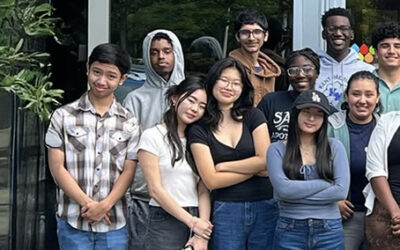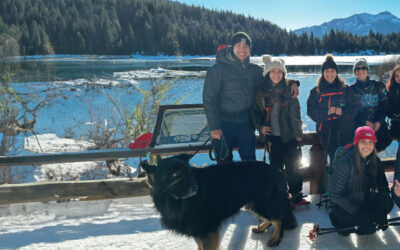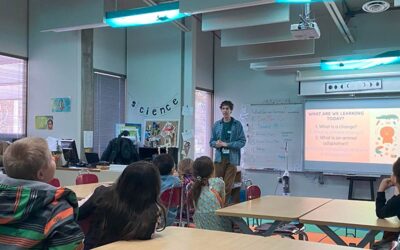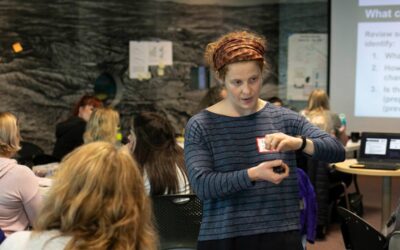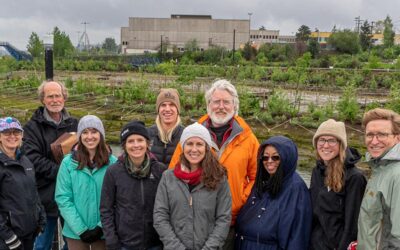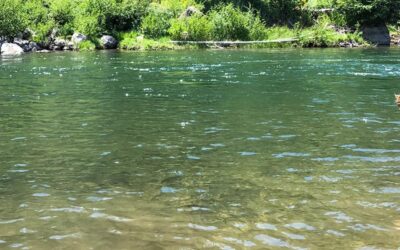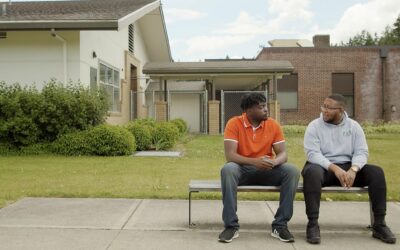Project Portraits
These Portraits were a collaborative effort between the ClimeTime partners and coordinating team members.

In order to best highlight the ClimeTime work, partners were asked to reflect on the successes and lessons learned in local and statewide projects. Partners shared stories of learning experienced by the teachers and students across Washington state. These Portraits of Practice represent the diversity of work done by ClimeTime and the many ways in which climate science and the focus on local phenomena-based learning can engage both teachers and students.
ClimeTime hopes that in sharing these Portraits, educators, students, and anyone invested in rigorous and experiential science learning will be inspired to explore how they can engage with climate science in their region. The Portraits of Practice offer an opportunity to reflect on the work conducted thus far, and use the stories to support the expanding work to deepen teacher and student understanding of climate science through the Next Generation Science Standards. ClimeTime values the work of Washington’s students, teachers, and community-based partners, and seeks to celebrate their commitment to engaging learning experiences.
Method
These Portraits were a collaborative effort between the ClimeTime partners and coordinating team members. In conversation with writers, partners brought to light narratives of work conducted by educators and climate science experts around the state, including the valuable and important knowledge of Indigenous communities. Writers compiled the stories shared and worked to represent what was done and what was learned in each Portrait. Each Portrait was reviewed by several people on the writing teams as well as edited and approved by the project partners. In some cases, the number of students was unknown. In such instances, a conservative multiplier of 20 students per teacher for elementary contexts and 100 students per teacher for secondary contexts was used to estimate students reached by the effort; at these times an “*” was placed beside the student number to indicate estimated calculation.
Use
Portraits can be used to help educators in your building, district or community envision what can be done to foster student learning in NGSS and/or climate change centered education. They can be discussed with decision makers at the school, district, or state level to illustrate what you wish to see in terms of educational innovation. More broadly, these Portraits might be disseminated with educational leaders and community-based organizations in other states to foster similar efforts in other contexts. Please widely share these Portraits of Practice so the work of our communities can be celebrated and uplifted.
Click on a portrait below to read more:
YOUTH VOICES FOR CLIMATE ACTION
The Youth Wisdom Council used photovoice to document environmental injustices in their communities, highlighting both challenges and sources of pride, while advocating for awareness, equity, and local change.
Walking the Green Trail
As part of the Community Education in Action program, Nosotros En Naturaleza (NEN) received a mini-grant and mentorship to support their efforts in creating a community-based learning series.
Climate Educator Book Club
The Climate Educator Book Club’s book study is designed to flexibly support teams of interdisciplinary K–12 educators from schools and districts across Washington in exploring ways to integrate climate learning into their classrooms meaningfully for their community.
Climate Literacy in the Classroom
The Gonzaga Institute for Climate, Water, and the Environment launched the Climate Literacy Fellows Program in 2021 in response to Spokane Public School students’ demands for climate education.
Earthgen’s STEM Seminars Through Time
STEM Seminars have been part of EarthGen’s ClimeTime offerings since 2018. These training opportunities have been available to K-12 teachers, starting in SW Washington with ESD 112 and expanding across the state.
Sustainability Ambassadors
Over a decade ago, non-profit leader and storyteller Peter Donaldson felt morally called to educate “for” sustainability, not just “about” it.
Our Climate is Changing, Why aren’t we?
During the 2022-2023 school year, Educational Service Districts 105, 123 and 171 partnered to launch a climate science-centered book study, hosting a cohort of 55 educators primarily located in eastern Washington.
Green Chemistry & Engineering
Across Washington State, educators have been integrating Design Principles for Sustainable and Green Chemistry and Engineering in classrooms through science experiments and projects learned in a series of professional learning experiences.
BIPOC Voices Welcome Students into STEM
The BIPOC Voices project supports educator and student learning about Black, Indigenous, and People of Color scientists and community advocates.

